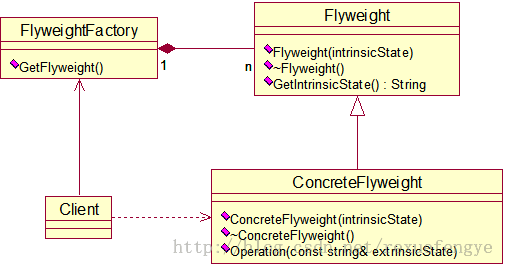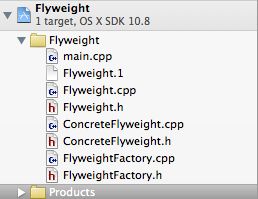- ros2学习【5】:话题以及通信实例(C++和python示例)
宋隽颢
ROS2c++python开发语言
节点与节点之间的交流方式有四种,话题,服务,参数,动作。服务,参数,动作是在话题的基础上组合实现的。所以话题是很基本,很重要的。节点与节目之间话题交流的媒介是消息接口。目录一、C++话题示例:1.发布消息1.2工作空间+构建功能包+新建节点文件1.2:CMakeList的处理1.3:构建+测试2.订阅消息:2.1新建文件turtle_control.cpp2.2:CMakeList的处理2.3:构
- Panda3D 载入角色
bcbobo21cn
图形学和3D3dActor
Panda3D推荐,将模型和动画数据,按照panda.egg、panda-walk.egg,类似这样的方式分开保存;在命令行连续输入命令;将自动绑定模型和动画数据;可查看模型的动画;在Python中有一个Actor类,从DirectObject和NodePath派生而来,用来载入角色及动画;C++没有这样一个类,角色及动画还是使用NodePath实现;参看前文的入门示例代码;图解Panda3D引擎
- C++实训练习册(C++之基础语法入门练习题)
白昼57
c++蓝桥杯开发语言
第1关:银行存款计算任务描述本关任务:编写一个能计算银行存款的小程序。相关知识为了完成本关任务,你需要掌握:1.简单的循环语句,2.基本数据类型。编程要求10万元存银行,每年利息3.75%,每年计算一次利息,将本金加上利息作为第二年的本金,求n年后该账户有多少钱。编写程序,要求:输入整数n(表示n年后),输出n年后的账户钱数(保留两位小数)。效果如下:输入:2输出:107640.63开始你的任务吧
- C++实训练习册(C++之基础语法进阶练习题)
白昼57
c++蓝桥杯开发语言
第1关:相同数字不同位数之和任务描述本关任务:编写一个能计算相同数字不同位数之和的小程序。编程要求求s=a+aa+aaa+aaaa+aa...a的值,其中a是一个数字,最后一项的位数为n。例如用户输入a=1,n=3时表示要求1+11+111。效果如下:输入:12输出:12开始你的任务吧,祝你成功!代码:#includeusingnamespacestd;size_tSum(size_ta,size
- c++将字符转换为数字
笑对明天 守望幸福
c++蓝桥杯开发语言
将字符数组中的字符‘1到9转换为整数数字#includeusingnamespacestd;intchnum(chara[]);intmain(){charar[5]={'3','5','3','7','4'};cout='0'&&str[i]#include//头文件usingnamespacestd;intchnum(string);intmain(){stringstr="234";cout
- 蓝桥杯实战应用【工具篇】-C++机器环境配置
林聪木
c++开发语言
目录大赛环境说明1.环境安装2.C/C++参赛选手注意c/c++参赛选手注意事项1.Dev-cpp2.VC++6.0(简版)c/c++组机器环境安装说明1.Dev-cpp安装与设置2.VC++6.0(简版)安装与配置3.安装帮助文档大赛环境说明1.环境安装竞赛环境所用软件均为绿色免安装版本。直接解开压缩即可使用(为防止意外损坏,解压后请不要删除原始压缩包;为了便于选手查找软件,最好解压在同一位置)
- 蓝桥杯 试题 算法训练 无聊的逗 C++ 详解 - 未完善
_Lyz_
蓝桥杯试题算法训练蓝桥杯算法c++
题目:逗志芃在干了很多事情后终于闲下来了,然后就陷入了深深的无聊中。不过他想到了一个游戏来使他更无聊。他拿出n个木棍,然后选出其中一些粘成一根长的,然后再选一些粘成另一个长的,他想知道在两根一样长的情况下长度最长是多少。输入格式:第一行一个数n,表示n个棍子。第二行n个数,每个数表示一根棍子的长度。输出格式:一个数,最大的长度。样例输入:4(回车)1(空格)2(空格)3(空格)1(回车)样例输出:
- 最长公共子序列(C++)(动态)
云袅
算法c++
题目描述一个给定序列的子序列是在该序列中删去若干元素后得到的序列。确切地说,若给定序列X={x1,x2,…,xm},则另一序列Z={z1,z2,…,zk}是X的子序列是指存在一个严格递增的下标序列{i1,i2,…,ik},使得对于所有j=1,2,…,k有:Xij=Zj例如,序列z={B,C,D,B}是序列X={A,B,C,B,D,A,B}的子序列,相应的递增下标序列为{2,3,5,7}。给定两个序
- 每日一题第15届蓝桥杯c/c++本科B组省赛第2题
wen__xvn
蓝桥杯蓝桥杯c++
#include#includeusingnamespacestd;intgcd(inta,intb){if(a
- 通过文件描述符(fd)去访问Android共享内存
aaajj
C/C++Linux/UnixAndroid
关于Android共享内存,可以查看下这个资料https://blog.csdn.net/goodlixueyong/article/details/53151959Android中分别提供了C++和Java的访问共享内存的接口Java层使用MemoryFile通过fd去标识共享内存android_os_SharedMemory.cpp里有具体实现Native层使用了binder封装,但是没有提供
- lua面向对象
剑决浮云气
lualua开发语言
1.self,也就是C++语言的this指针localAccount={balance=0}functionAccount.add(this,v)this.balance=this.balance+vendfunctionAccount:sub(v)self.balance=self.balance-vend--[[当我们用.去调用一个函数的时候需要显示的把对象自己传递过去]]Account.ad
- 矩阵对角线求和C++
一半烟火一半诗意.
c++矩阵算法
#includeusingnamespacestd;intmain(){inta[100][100];intn,i,j,
- C++ 缓存(lru结合lfu)
ShAn DiAn
C++缓存c++数据结构链表
1.ARC(AdaptiveReplacementCache)算法的核心思想LRU(最近最久未使用)算法的主要不足在于它只考虑时间局部性,当遇到突发性的冷数据访问时,可能会将热点数据挤出缓存,造成缓存污染。例如,如果缓存大小为4,当前缓存中有热点数据A、B、C、D,突然有大量冷数据E、F、G、H访问,这些冷数据会依次替换掉热点数据,导致缓存命中率急剧下降。而LFU(最近最少使用)算法虽然考虑了访问
- C++ 学习笔记
ShAn DiAn
学习笔记c++
1.虚函数(VirtualFunction)定义:用virtual声明,允许派生类重写(覆盖)基类函数,实现运行时多态核心特性:动态绑定:通过基类指针/引用调用虚函数时,实际调用的是对象类型的函数(运行时确定)虚函数表(vtable):每个包含虚函数的类有一个虚函数表,存储虚函数地址;对象内存中包含指向该表的指针(vptr)虚析构函数:若基类指针指向派生类对象,基类析构函数必须为虚函数,否则可能导
- C++中的异常和智能指针
九州~空城
c++开发语言
一、C++中的异常1.1C语言中关于错误的处理(回顾)1.1.1处理一:文件中的错误码,错误信息C语言中,文件打开成功则返回地址,不成功返回0FILE*fout=fopen("Test.txt","r");cout在,查catch有无类型匹配2>不在或无类型匹配,退出当前函数,沿着函数栈去调用它的函数中查找有无try,再走一遍①的逻辑,如果到达main()结束时仍无匹配,则终止程序如intadd(
- C++中的动态内存分配
花落已飘
C++零基础教程c++开发语言
文章目录前言一、C++中的new和delete关键字二、C++中new和C语言中malloc的区别总结前言在C语言中大家都知道怎么样分配一块内存,使用malloc,今天我将给大家介绍在C++中如何进行动态内存分配。一、C++中的new和delete关键字在C++中使用new在栈上进行内存分配,使用delete释放内存。使用案例:#includeusingnamespacestd;intmain()
- 【转载】c++每日一题--小小演唱家
神明18号
转载传奇c++数据结构开发语言
小小演唱家2显示标签题目统计全部提交时间限制:C/C++1000MS,其他语言2000MS内存限制:C/C++256MB,其他语言512MB难度:中等分数:100OI排行榜得分:18(0.1*分数+2*难度)描述童程童美学院举办了“小小演唱家”选拔赛,舞台上群星璀璨、精彩万分。选拔赛的评委一共有5位,评分规则如下:去掉一个最高分,去掉一个最低分,将剩下3位评委的打分相加,就是这位选手的最终得分。请
- C++力扣每日一题-神奇字符串
lakawaka
c++leetcode开发语言
题目:神奇字符串s仅由‘1’和‘2’组成,并需要遵守下面的规则:神奇字符串s的神奇之处在于,串联字符串中‘1’和‘2’的连续出现次数可以生成该字符串。s的前几个元素是s=“1221121221221121122……”。如果将s中连续的若干1和2进行分组,可以得到“1221121221221121122…”。每组中1或者2的出现次数分别是“122112122122…”。上面的出现次数正是s自身。给你
- C++使用sort函数对学生的成绩进行排序
你今天刷题了吗?
C/C++的学习蓝桥杯c++stl
文章目录一、题意二、代码1.代码的实现2.读入数据三、总结一、题意制作一个简单的排序程序,首先在第一行输入一个数据n代表一共有n个学生,然后再依次输入每个学生的成绩和姓名。并且对该成绩表加以输出,按成绩从大到小进行排序,如果两个学生的成绩相等,则按照名字的字典顺序进行排序。二、代码1.代码的实现代码如下(示例)://使用sort函数对学生的信息进行排序如果成绩相同,则按照名字的字典顺序进行排序#i
- 里奥老师乾坤大挪移—哈希表与哈希函数专题1
OracleSeeker
哈希算法散列表数据结构
首先还是要先感谢左神11.10.基础提升哈希函数与哈希表等1.要想掌握这么经典且复杂的问题,祭出埃隆马斯克的第一性原理+乾坤大挪移:表就是映射、函数就是映射。2.说到哈希表,实在是太经典的数据结构了,哈希表应该是各大编程语言的标准配置,C++的STL必须有哈希表。3.一提到哈希表很容易让我联想到,哈夫曼编码,二哈!这个我们在下一篇文章专门讨论哈夫曼编码。~~暴力递归是一切算法的核心,一维数组是一切
- 基于QT(C++)实现用户界面系统
神仙别闹
课程设计qtc++ui
用户界面系统本次作业实现了随机化芯片设计方法中芯片的手动设计与芯片流速与浓度的关联计算与图形化显示,基于Qt设计了一个MicrofluidicChipSimulation用户界面系统。具体功能用户可以通过工具栏上的Create新建所需芯片,可自定义的参数包括:芯片大小、输入输出管道的位置用户可以在芯片界面单击芯片内某根管道,切换管道的开闭,进行直观的修改用户可以通过工具栏上的Random随机生成芯
- C/C++ 线程安全队列
一名CV界的小学生
C++#STLC++c++多线程队列
一些相关的理论暂未查到,简单做个记录#include#include"mutex"#include"condition_variable"#include"queue"#include"thread"#include"chrono"templateclassThreadSafeQueue{private:mutablestd::mutexm_mutex;std::queuem_queue;std:
- C++多线程知识点总结
Null_Bug_Null
C++语法知识点总结c++开发语言算法
C++多线程知识点总结相比C++98,C++11提供了很多的全新的完备的特性,其中一项重要支持就是语言本身正式支持了多线程。本文将较为全面地简要介绍一下C++11中多线程相关库。总的来说,C++提供了两套多线程技术相关的类库:以线程类为代表的标准线程库,包括:thread类、锁mutex、原子变量atomic等以异步执行为目标的异步执行库,包括:future、promise、packaged_ta
- Python,C++开发手术远程监测(医患共管)APP
Geeker-2025
pythonc++
开发一个**手术远程监测(医患共管)APP**是一个复杂且高度专业化的任务,涉及到实时数据传输、医疗设备集成、患者隐私保护、医患互动等多个方面。此类APP的目标是为医生和患者提供一个数字化平台,用于在手术前后和手术过程中进行远程监测和管理。以下是基于合法合规的前提,开发此类APP的技术思路和实现方案。我们将重点放在如何利用**Python**和**C++**语言的技术优势,开发一个安全、高效、易用
- 用C/C++实现针对整数的BoomFilter
东北豆子哥
C++c语言c++哈希算法
整数布隆过滤器(BloomFilterforIntegers)实现布隆过滤器是一种空间效率高的概率型数据结构,用于判断一个元素是否在集合中。下面是一个针对整数的布隆过滤器C++实现:#include#include#include#includeclassIntegerBloomFilter{private:std::vectorbit_array;//位数组intsize;//位数组大小intn
- 面试高频手撕题 | 09.将两个有序数组合并成一个有序数组
愤怒的小青春
java
题解|#重载运算#classCoordinate:def__init__(self,x,y)->None:self.x=x题解|#小易的升级之路#C++暴力解法#include#include#include#inclu在4399工作同事相处融洽,福利多多在4399工作已经两年多了,下面分享一下体验。工作氛围:大部分都是年轻人,相处融洽交流没有代沟。各式各样的好看小姐姐,帅气的小哥,大家都是比较聊
- C++进阶——指针
徐行tag
C++进阶c++开发语言
第一部分:指针的本质(内存视角)内存地址的物理意义计算机内存是一系列连续编址的存储单元每个变量占据特定内存区域(如intx占4字节)地址:内存单元的唯一编号(如0x7ffeeb0c)指针的定义cppintx=42;//普通变量int*ptr=&x;//ptr保存x的地址&操作符:取地址操作符(Address-ofOperator)*操作符:声明指针类型或解引用操作符(DereferenceOper
- 华为OD机试E卷 - 分奖金(Java & Python& JS & C++ & C )
算法大师
最新华为OD机试真题华为OD机试真题(Java/JS/Py/C)华为odjavapython华为OD2025A卷javascriptc++
最新华为OD机试真题目录:点击查看目录华为OD面试真题精选:点击立即查看题目描述公司老板做了一笔大生意,想要给每位员工分配一些奖金,想通过游戏的方式来决定每个人分多少钱。按照员工的工号顺序,每个人随机抽取一个数字。按照工号的顺序往后排列,遇到第一个数字比自己数字大的,那么,前面的员工就可以获得“距离*数字差值”的奖金。如果遇不到比自己数字大的,就给自己分配随机数数量的奖金。例如,按照工号顺序的随机
- Simula语言的扩展运算符
霍珵璁
包罗万象golang开发语言后端
Simula语言中的扩展运算符引言Simula语言是现代编程语言的先驱之一,由挪威计算机科学家Ole-JohanDahl和KristenNygaard于1960年代开发。它不仅是面向对象编程(OOP)的发源地之一,还引入了许多编程中至关重要的概念,包括类和对象。尽管Simula的普及程度不如C++或Java等语言,但其在计算机科学史上的地位依然不可忽视。扩展运算符是Simula语言中的一个重要特性
- Java与C++深度对比:特性、性能与应用场景
javac++
语言设计与哲学对比1.1设计理念C++:"零成本抽象"原则:高级特性不应带来额外运行时开销信任程序员:给予完全的内存和硬件控制权多范式混合:支持过程式、面向对象、泛型、函数式编程Java:"一次编写,到处运行":通过JVM实现平台无关性安全性优先:移除指针、自动内存管理纯粹的面向对象:除基本类型外一切皆对象1.2典型应用场景语言典型应用领域C++游戏引擎、操作系统、高频交易、嵌入式系统、图形渲染J
- Dom
周华华
JavaScripthtml
<!DOCTYPE html PUBLIC "-//W3C//DTD XHTML 1.0 Transitional//EN" "http://www.w3.org/TR/xhtml1/DTD/xhtml1-transitional.dtd">
<html xmlns="http://www.w3.org/1999/xhtml&q
- 【Spark九十六】RDD API之combineByKey
bit1129
spark
1. combineByKey函数的运行机制
RDD提供了很多针对元素类型为(K,V)的API,这些API封装在PairRDDFunctions类中,通过Scala隐式转换使用。这些API实现上是借助于combineByKey实现的。combineByKey函数本身也是RDD开放给Spark开发人员使用的API之一
首先看一下combineByKey的方法说明:
- msyql设置密码报错:ERROR 1372 (HY000): 解决方法详解
daizj
mysql设置密码
MySql给用户设置权限同时指定访问密码时,会提示如下错误:
ERROR 1372 (HY000): Password hash should be a 41-digit hexadecimal number;
问题原因:你输入的密码是明文。不允许这么输入。
解决办法:用select password('你想输入的密码');查询出你的密码对应的字符串,
然后
- 路漫漫其修远兮 吾将上下而求索
周凡杨
学习 思索
王国维在他的《人间词话》中曾经概括了为学的三种境界古今之成大事业、大学问者,罔不经过三种之境界。“昨夜西风凋碧树。独上高楼,望尽天涯路。”此第一境界也。“衣带渐宽终不悔,为伊消得人憔悴。”此第二境界也。“众里寻他千百度,蓦然回首,那人却在灯火阑珊处。”此第三境界也。学习技术,这也是你必须经历的三种境界。第一层境界是说,学习的路是漫漫的,你必须做好充分的思想准备,如果半途而废还不如不要开始。这里,注
- Hadoop(二)对话单的操作
朱辉辉33
hadoop
Debug:
1、
A = LOAD '/user/hue/task.txt' USING PigStorage(' ')
AS (col1,col2,col3);
DUMP A;
//输出结果前几行示例:
(>ggsnPDPRecord(21),,)
(-->recordType(0),,)
(-->networkInitiation(1),,)
- web报表工具FineReport常用函数的用法总结(日期和时间函数)
老A不折腾
finereport报表工具web开发
web报表工具FineReport常用函数的用法总结(日期和时间函数)
说明:凡函数中以日期作为参数因子的,其中日期的形式都必须是yy/mm/dd。而且必须用英文环境下双引号(" ")引用。
DATE
DATE(year,month,day):返回一个表示某一特定日期的系列数。
Year:代表年,可为一到四位数。
Month:代表月份。
- c++ 宏定义中的##操作符
墙头上一根草
C++
#与##在宏定义中的--宏展开 #include <stdio.h> #define f(a,b) a##b #define g(a) #a #define h(a) g(a) int main() { &nbs
- 分析Spring源代码之,DI的实现
aijuans
springDI现源代码
(转)
分析Spring源代码之,DI的实现
2012/1/3 by tony
接着上次的讲,以下这个sample
[java]
view plain
copy
print
- for循环的进化
alxw4616
JavaScript
// for循环的进化
// 菜鸟
for (var i = 0; i < Things.length ; i++) {
// Things[i]
}
// 老鸟
for (var i = 0, len = Things.length; i < len; i++) {
// Things[i]
}
// 大师
for (var i = Things.le
- 网络编程Socket和ServerSocket简单的使用
百合不是茶
网络编程基础IP地址端口
网络编程;TCP/IP协议
网络:实现计算机之间的信息共享,数据资源的交换
协议:数据交换需要遵守的一种协议,按照约定的数据格式等写出去
端口:用于计算机之间的通信
每运行一个程序,系统会分配一个编号给该程序,作为和外界交换数据的唯一标识
0~65535
查看被使用的
- JDK1.5 生产消费者
bijian1013
javathread生产消费者java多线程
ArrayBlockingQueue:
一个由数组支持的有界阻塞队列。此队列按 FIFO(先进先出)原则对元素进行排序。队列的头部 是在队列中存在时间最长的元素。队列的尾部 是在队列中存在时间最短的元素。新元素插入到队列的尾部,队列检索操作则是从队列头部开始获得元素。
ArrayBlockingQueue的常用方法:
- JAVA版身份证获取性别、出生日期及年龄
bijian1013
java性别出生日期年龄
工作中需要根据身份证获取性别、出生日期及年龄,且要还要支持15位长度的身份证号码,网上搜索了一下,经过测试好像多少存在点问题,干脆自已写一个。
CertificateNo.java
package com.bijian.study;
import java.util.Calendar;
import
- 【Java范型六】范型与枚举
bit1129
java
首先,枚举类型的定义不能带有类型参数,所以,不能把枚举类型定义为范型枚举类,例如下面的枚举类定义是有编译错的
public enum EnumGenerics<T> { //编译错,提示枚举不能带有范型参数
OK, ERROR;
public <T> T get(T type) {
return null;
- 【Nginx五】Nginx常用日志格式含义
bit1129
nginx
1. log_format
1.1 log_format指令用于指定日志的格式,格式:
log_format name(格式名称) type(格式样式)
1.2 如下是一个常用的Nginx日志格式:
log_format main '[$time_local]|$request_time|$status|$body_bytes
- Lua 语言 15 分钟快速入门
ronin47
lua 基础
-
-
单行注释
-
-
[[
[多行注释]
-
-
]]
-
-
-
-
-
-
-
-
-
-
-
1.
变量 & 控制流
-
-
-
-
-
-
-
-
-
-
num
=
23
-
-
数字都是双精度
str
=
'aspythonstring'
- java-35.求一个矩阵中最大的二维矩阵 ( 元素和最大 )
bylijinnan
java
the idea is from:
http://blog.csdn.net/zhanxinhang/article/details/6731134
public class MaxSubMatrix {
/**see http://blog.csdn.net/zhanxinhang/article/details/6731134
* Q35
求一个矩阵中最大的二维
- mongoDB文档型数据库特点
开窍的石头
mongoDB文档型数据库特点
MongoDD: 文档型数据库存储的是Bson文档-->json的二进制
特点:内部是执行引擎是js解释器,把文档转成Bson结构,在查询时转换成js对象。
mongoDB传统型数据库对比
传统类型数据库:结构化数据,定好了表结构后每一个内容符合表结构的。也就是说每一行每一列的数据都是一样的
文档型数据库:不用定好数据结构,
- [毕业季节]欢迎广大毕业生加入JAVA程序员的行列
comsci
java
一年一度的毕业季来临了。。。。。。。。
正在投简历的学弟学妹们。。。如果觉得学校推荐的单位和公司不适合自己的兴趣和专业,可以考虑来我们软件行业,做一名职业程序员。。。
软件行业的开发工具中,对初学者最友好的就是JAVA语言了,网络上不仅仅有大量的
- PHP操作Excel – PHPExcel 基本用法详解
cuiyadll
PHPExcel
导出excel属性设置//Include classrequire_once('Classes/PHPExcel.php');require_once('Classes/PHPExcel/Writer/Excel2007.php');$objPHPExcel = new PHPExcel();//Set properties 设置文件属性$objPHPExcel->getProperties
- IBM Webshpere MQ Client User Issue (MCAUSER)
darrenzhu
IBMjmsuserMQMCAUSER
IBM MQ JMS Client去连接远端MQ Server的时候,需要提供User和Password吗?
答案是根据情况而定,取决于所定义的Channel里面的属性Message channel agent user identifier (MCAUSER)的设置。
http://stackoverflow.com/questions/20209429/how-mca-user-i
- 网线的接法
dcj3sjt126com
一、PC连HUB (直连线)A端:(标准568B):白橙,橙,白绿,蓝,白蓝,绿,白棕,棕。 B端:(标准568B):白橙,橙,白绿,蓝,白蓝,绿,白棕,棕。 二、PC连PC (交叉线)A端:(568A): 白绿,绿,白橙,蓝,白蓝,橙,白棕,棕; B端:(标准568B):白橙,橙,白绿,蓝,白蓝,绿,白棕,棕。 三、HUB连HUB&nb
- Vimium插件让键盘党像操作Vim一样操作Chrome
dcj3sjt126com
chromevim
什么是键盘党?
键盘党是指尽可能将所有电脑操作用键盘来完成,而不去动鼠标的人。鼠标应该说是新手们的最爱,很直观,指哪点哪,很听话!不过常常使用电脑的人,如果一直使用鼠标的话,手会发酸,因为操作鼠标的时候,手臂不是在一个自然的状态,臂肌会处于绷紧状态。而使用键盘则双手是放松状态,只有手指在动。而且尽量少的从鼠标移动到键盘来回操作,也省不少事。
在chrome里安装 vimium 插件
- MongoDB查询(2)——数组查询[六]
eksliang
mongodbMongoDB查询数组
MongoDB查询数组
转载请出自出处:http://eksliang.iteye.com/blog/2177292 一、概述
MongoDB查询数组与查询标量值是一样的,例如,有一个水果列表,如下所示:
> db.food.find()
{ "_id" : "001", "fruits" : [ "苹
- cordova读写文件(1)
gundumw100
JavaScriptCordova
使用cordova可以很方便的在手机sdcard中读写文件。
首先需要安装cordova插件:file
命令为:
cordova plugin add org.apache.cordova.file
然后就可以读写文件了,这里我先是写入一个文件,具体的JS代码为:
var datas=null;//datas need write
var directory=&
- HTML5 FormData 进行文件jquery ajax 上传 到又拍云
ileson
jqueryAjaxhtml5FormData
html5 新东西:FormData 可以提交二进制数据。
页面test.html
<!DOCTYPE>
<html>
<head>
<title> formdata file jquery ajax upload</title>
</head>
<body>
<
- swift appearanceWhenContainedIn:(version1.2 xcode6.4)
啸笑天
version
swift1.2中没有oc中对应的方法:
+ (instancetype)appearanceWhenContainedIn:(Class <UIAppearanceContainer>)ContainerClass, ... NS_REQUIRES_NIL_TERMINATION;
解决方法:
在swift项目中新建oc类如下:
#import &
- java实现SMTP邮件服务器
macroli
java编程
电子邮件传递可以由多种协议来实现。目前,在Internet 网上最流行的三种电子邮件协议是SMTP、POP3 和 IMAP,下面分别简单介绍。
◆ SMTP 协议
简单邮件传输协议(Simple Mail Transfer Protocol,SMTP)是一个运行在TCP/IP之上的协议,用它发送和接收电子邮件。SMTP 服务器在默认端口25上监听。SMTP客户使用一组简单的、基于文本的
- mongodb group by having where 查询sql
qiaolevip
每天进步一点点学习永无止境mongo纵观千象
SELECT cust_id,
SUM(price) as total
FROM orders
WHERE status = 'A'
GROUP BY cust_id
HAVING total > 250
db.orders.aggregate( [
{ $match: { status: 'A' } },
{
$group: {
- Struts2 Pojo(六)
Luob.
POJOstrust2
注意:附件中有完整案例
1.采用POJO对象的方法进行赋值和传值
2.web配置
<?xml version="1.0" encoding="UTF-8"?>
<web-app version="2.5"
xmlns="http://java.sun.com/xml/ns/javaee&q
- struts2步骤
wuai
struts
1、添加jar包
2、在web.xml中配置过滤器
<filter>
<filter-name>struts2</filter-name>
<filter-class>org.apache.st


